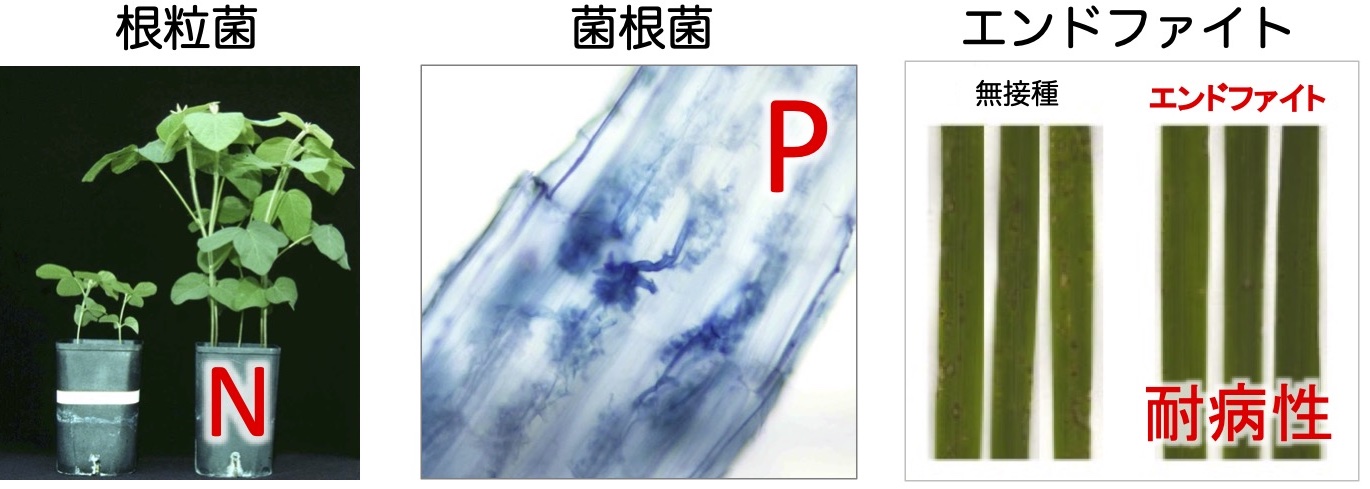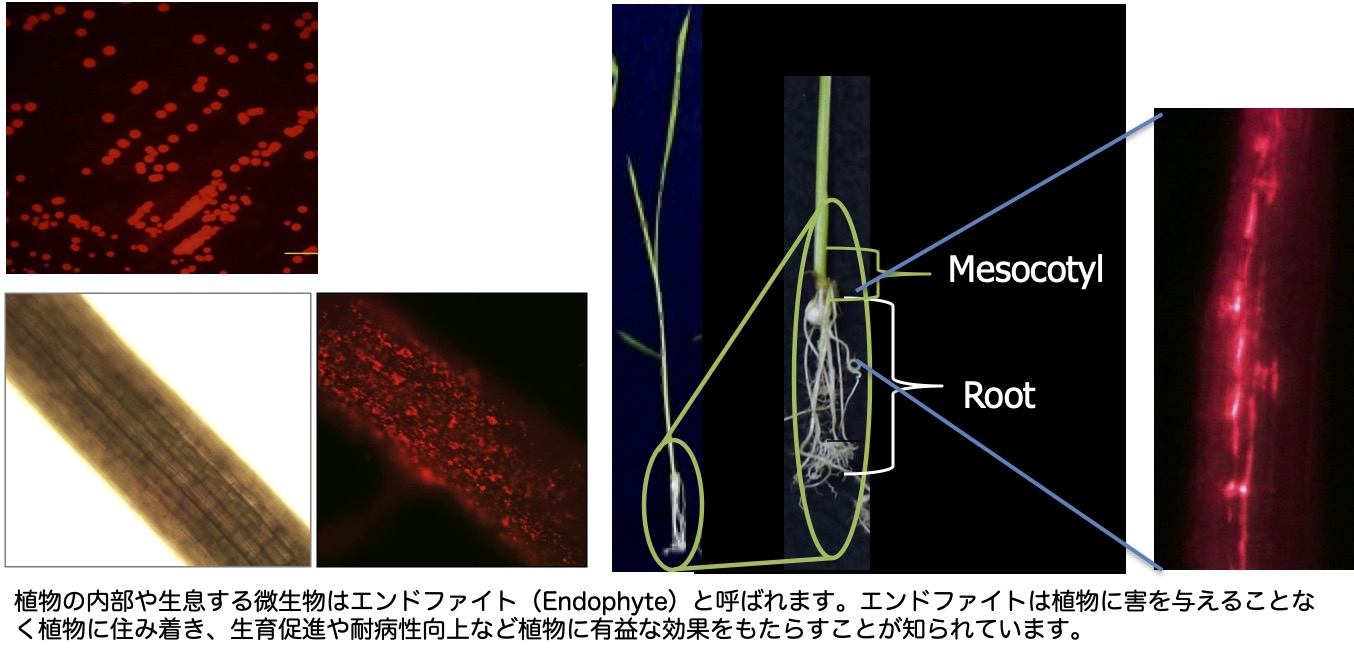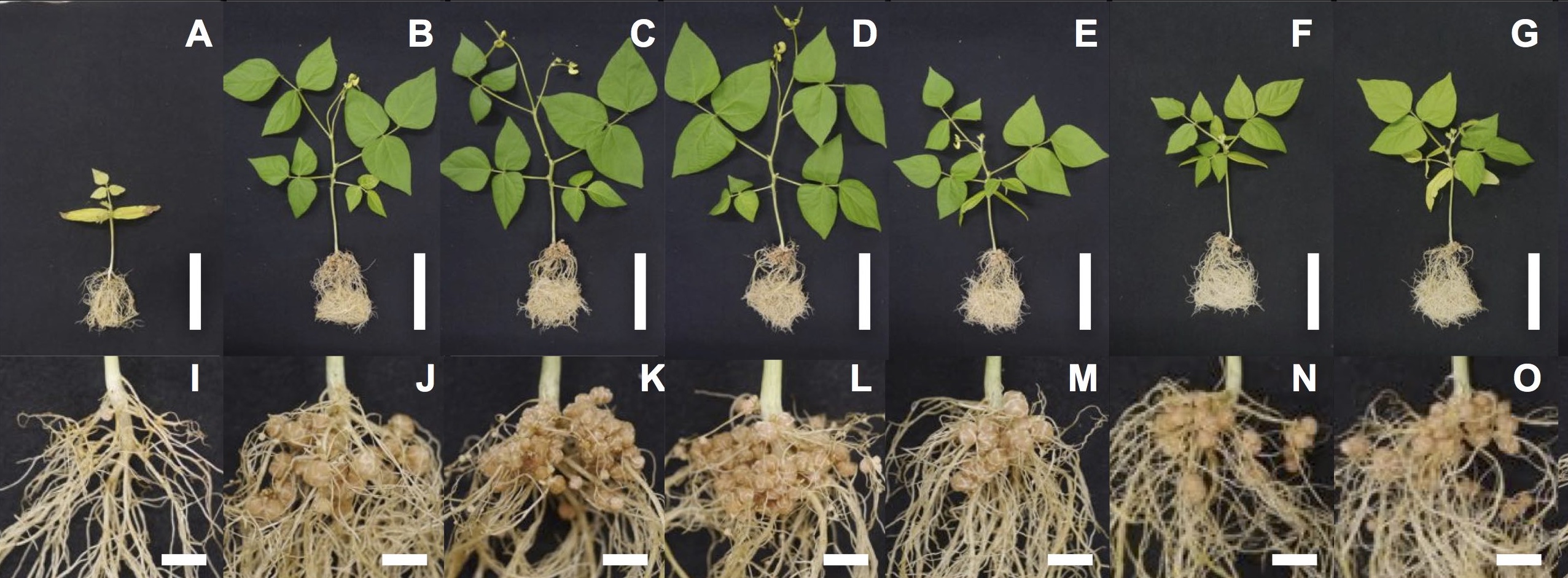Creating future agriculture with plant symbiotic microorganisms
Plants are continually exposed to a variety of microbes. Some microbes can establish symbiotic relationships with plants and support them. To achieve sustainable agriculture, it is important to utilize those beneficial microbes and reduce agricultural chemicals. The work in our laboratory covers (1) Isolation and characterization of symbiotic microbes from various plants around the world, (2) Molecular dissection of plant-microbe interactions, and (3) Application of beneficial microorganisms for agricultural production. We are currently conducting the following research.
Isolation and characterization of symbiotic microbes from various plants around the world
In order to survive in the harsh natural environment, plants coexist with various microorganisms. There are also microorganisms that supply nutrients such as nitrogen and phosphorus, and microorganisms that bring out disease resistance and drought tolerance in plants. We will travel to various environments around the world to discover a wide variety of useful microorganisms, evaluate their useful traits such as their ability to promote plant growth, and develop a foundation for their use as new microbial resources.
Molecular interactions between plant and symbiotic microbes
Symbiotic microbes, such as rhizobia and mycorrhizal fungi, have unique strategies to establish symbiosis with plants. On the other hand, plants also have a set of genes that allow them to accept symbionts. We aim to understand the molecular mechanisms of plant-microbe symbiosis using molecular biology, omics analysis, and contribute to crop production by strengthening symbiotic relationships and creating new symbiotic systems.
- Elucidation of a novel symbiotic pathway in legume-rhizobia symbiosis
- Microbiome analysis of nature farming and organic farming
Development of new technology using microbial functions
Crop production and environmental purification, including the development of biofertilizers that supply nutrients to crops, biostimulants that bring out disease resistance and drought tolerance, and microbial materials that reduce the greenhouse gas nitrous oxide (N2O). We will develop technology that utilizes microbial functions.




